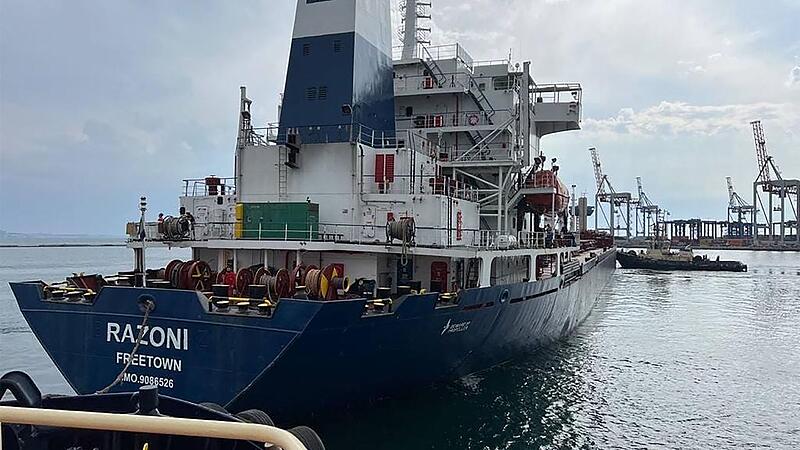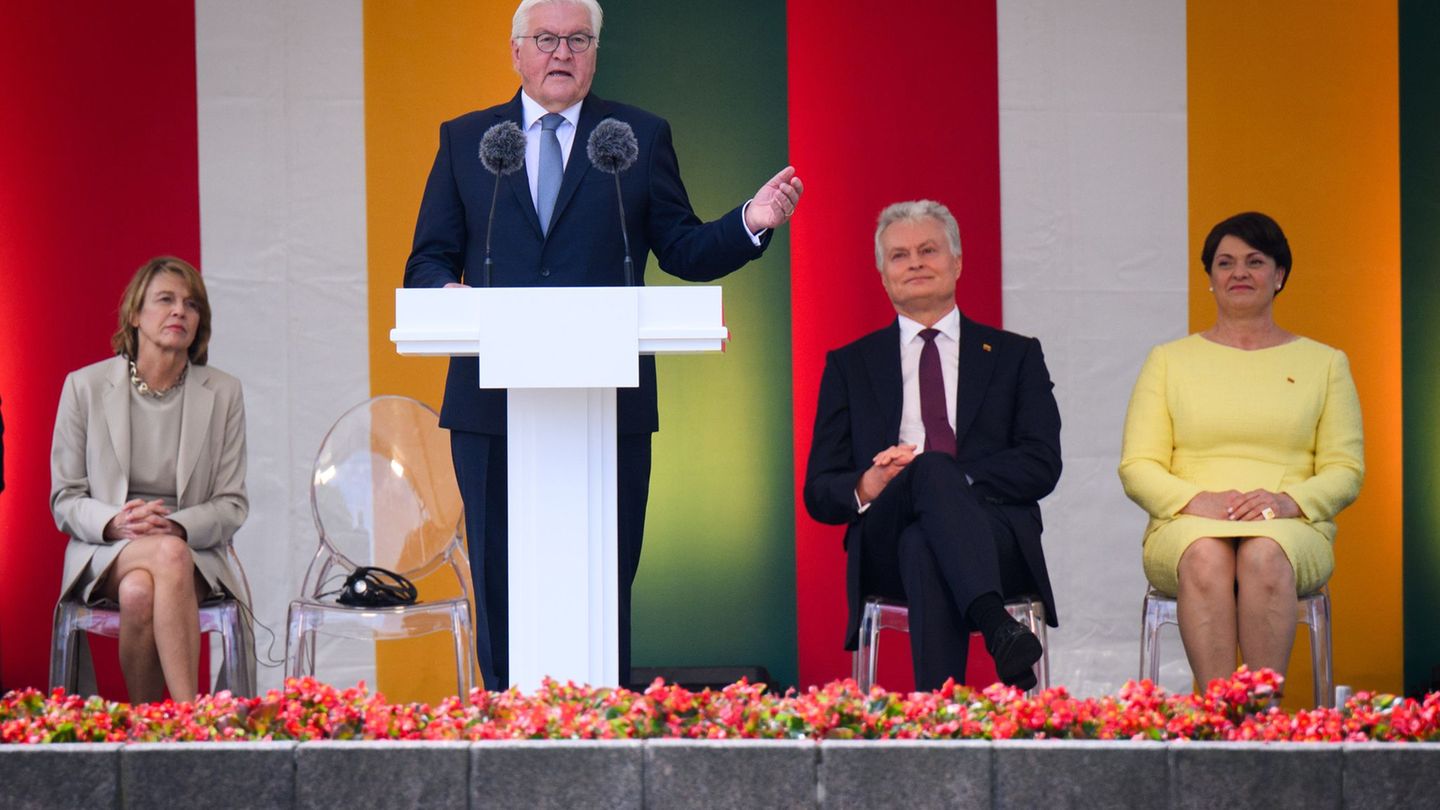Image: URKISH DEFENSE MINISTRY / AFP
Since August, 24.1 million tons of agricultural commodities have been exported through the UN grain deal to ease global food shortages caused by Russia’s war of aggression in Ukraine. The largest buyers are not found in the Global South: Two thirds of exports have so far gone to China, Spain, Turkey, Italy and the Netherlands. With 5.2 million tons, China is currently the biggest beneficiary of the agreement. The three ships that left last Friday as part of the UN initiative all set course for Chinese ports. They had loaded 134,000 tons of corn and barley. About 100 freight trains would be needed to transport the same amount of grain by rail.
So far, 4.1 million tons of agricultural goods have gone to Spain, followed by Turkey (2.7 million), Italy (1.8 million) and the Netherlands (1.5 million). Egypt (850,000 tons), one of the countries particularly dependent on Ukrainian grain, comes in sixth place. However, the list of countries only says something about the end users to a limited extent. For example, the Netherlands are so far ahead because they are home to one of the world’s largest ports, Rotterdam.
The agreement is one of the few bright spots in the war and goes back to an initiative by UN Secretary-General António Guterres. At the end of April 2022, he had proposed a corresponding agreement to the Ukrainian President Volodymyr Zelenskyj and Kremlin boss Vladimir Putin. Later, Turkish President Recep Tayyip Erdogan also intervened as a mediator. The tough negotiations were primarily about Russia’s security concerns, which wanted to prevent a strengthening of Ukraine. On July 22, the agreement was signed in Istanbul in the presence of Guterres, Erdogan, Russian Defense Minister Sergei Shoigu and Ukraine’s Infrastructure Minister Oleksandr Kubrakov.
The agreement allows exports from the Ukrainian ports of Odessa, Chornomorsk and Yuzhny (Pivdennyj). The linchpin of the agreement is a joint coordination center (JCC) in Istanbul, operated by the four contracting parties, which monitors ship movements. Ships are only allowed through if their cargo has been checked by inspectors from the United Nations, Turkey, Ukraine and Russia. According to the United Nations in January, it takes an average of three weeks from the export application to the inspection.
100 ship transports per month
The coordination center started its work on July 27th. On August 1, the first ship with 26,000 tons of grain on board left the port of Odessa for Egypt. Around 100 ship transports are handled every month. The 807th ship left Odessa on Monday to bring 66,000 tons of corn to Spain. Of the previous tonnage, 49 percent was corn, 27 percent was grain and 10 percent was sunflower derivatives. In addition to Ukrainian agricultural goods, Russian fertilizers will also be exported under the agreement.
Guterres praised the agreement as a “glimmer of hope” much needed in today’s world when it was signed in Istanbul on July 27. Initially limited to 120 days, it was extended by a second identical period in November. The agreement would have expired on March 19. However, Russia agreed to an extension on Monday evening after Guterres got the green light to continue the deal during a visit to Kiev last week. To allay Russian concerns, top UN diplomat Rebeca Grynspan began negotiations with Kremlin officials in Geneva on Monday.
The agreement should only be valid for 60 more days. Russia is pushing for relief on its fertilizer exports, which it sees as being hampered by Western sanctions. Approving a further extension makes Moscow dependent on progress in these export deals. Russia is demanding that bank payments, transport logistics and insurance be facilitated, as well as the reopening of Russia’s ammonia pipeline, which runs through Ukraine. It has not been in operation since the Russian attack on the neighboring country in February 2022.
The fragile structure of the agreement is reflected in the fact that two bodies within the UN are responsible for processing exports. While Russian fertilizer exports are the responsibility of Grynspan as secretary-general of the United Nations Conference on Trade and Development (UNCTAD), the head of the UN emergency relief agency OCHA, Martin Griffiths, coordinates Ukraine’s grain exports.
more from economy




